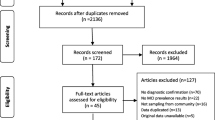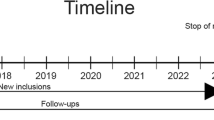En
Abstract
Background and Objective: Amnestic mild cognitive impairment (aMCI), characterized by episodic memory impairment in the absence of clinical dementia, often represents a transitional stage between normal aging and Alzheimer’s disease (AD). It is not known if non-expert primary-care physicians (PCPs) can differentiate individuals with no cognitive impairment (NCI), aMCI and mild AD in a primary-care practice setting. This study develops an approach to this question, which is necessary for aMCI to become a treatment target.
Methods: Fourteen experts assessed subjects with memory complaints in terms of their laboratory test results, magnetic resonance imaging findings and scores on the Mini-Mental State Examination, adapted Clinical Dementia Rating Scale and Alzheimer’s Disease Assessment Scale-cognitive subscale Delayed Word Recall before designating each subject as having NCI, aMCI or AD. Subjects agreed upon by a consensus committee were assigned to nonexpert PCPs who, following brief training, assessed them using the same clinical information and utilizing the same assessment instruments. The chance-corrected inter-rater reliability (expert versus non-expert) measure κ, based on binary outcome (aMCI/not-aMCI), was estimated.
Results: The study recruited 119 evaluable subjects (50 aMCI, 27 mild AD and 42 NCI) and demonstrated fair to moderate agreement (k = 0.423) between experts and non-experts in designation of aMCI. The percent agreement was 72.3%, sensitivity 62.0% and specificity 79.7%. Overall, non-experts under-rated the level of impairment compared with experts.
Conclusion: This study established the feasibility of making the aMCI designation in the community and identified some likely sources of error. The results suggest that when drugs with clear benefit for aMCI patients are developed, community-based PCPs, with additional, more optimized training, will be able to accurately identify those patients who should receive treatment.




Similar content being viewed by others
References
Petersen RC. Mild cognitive impairment as a diagnostic entity. J Intern Med 2004; 256(3): 183–94
Petersen RC, Smith GE, Waring SC, et al. Mild cognitive impairment: clinical characterization and outcome. Arch Neurol 1999; 56(3): 303–8
Petersen RC, Thomas RG, Grundman M, et al. Vitamin E and donepezil for the treatment of mild cognitive impairment. Alzheimer’s Disease Cooperative Study Group. N Engl J Med 2005; 352(23): 2379–88
Petersen RC, Doody R, Kurz A, et al. Current concepts in mild cognitive impairment. Arch Neurol 2001; 58(12): 1985–92
Farlow MR. Treatment of mild cognitive impairment (MCI). Curr Alzheimer Res 2009; 6(4): 362–7
Wilkinson D, Sganga A, Stave C, et al. Implications of the Facing Dementia Survey for health care professionals across Europe. Int J Clin Pract 2005 Suppl.; 59(146): 27–31
Graham DP, Cully JA, Snow AL, et al. The Alzheimer’s Disease Assessment Scale-Cognitive subscale: normative data for older adult controls. Alzheimer Dis Assoc Disord 2004; 18(4): 236–40
American Psychiatric Association. Diagnostic and statistical manual of mental disorders. 4th ed. text rev. Washington, DC: American Psychiatric Association Press, 2000
McKhann G, Drachman D, Folstein M, et al. Clinical diagnosis of Alzheimer’s disease: report of the NINCDSADRDA Work Group under the auspices of Department of Health and Human Services Task Force on Alzheimer’s Disease. Neurology 1984; 34: 939–44
Morris JC. The Clinical Dementia Rating (CDR): current version and scoring rules. Neurology 1993; 43(11): 2412–4
Grundman M, Petersen RC, Ferris SH, et al. Mild cognitive impairment can be distinguished from Alzheimer disease and normal aging for clinical trials. Arch Neurol 2004; 61(1): 59–66
O’Bryant SE, Waring SC, Cullum CM, et al. Staging dementia using clinical dementia rating scale sum of boxes scores: a Texas Alzheimer’s research consortium study. Arch Neurol 2008; 65(8): 1091–5
Salloway S, Ferris S, Kluger A, et al. Efficacy of donepezil in mild cognitive impairment: a randomized placebocontrolled trial. Neurology 2004; 63(4): 651–7
Folstein MF, Folstein SE, McHugh PR. “Mini-mental state”: a practical method for grading the cognitive state of patients for the clinician. JPsychiatr Res 1975; 12(3): 189–98
Feher EP, Mahurin RK, Doody RS, et al. Establishing the limits of the mini-mental state: examination of ’subtests’. Arch Neurol 1992; 49(1): 87–92
Cicchetti DV, Allison T. A new procedure for assessing reliability of scoring EEG sleep recordings. Am J EEG Technol 1971; 11: 101–9
Boustani M, Callahan CM, Unverzagt FW, et al. Implementing a screening and diagnosis program for dementia in primary care. J Gen Intern Med 2005; 20(7): 572–7
Morris JC, Storandt M, Miller JP, et al. Mild cognitive impairment represents early-stage Alzheimer’s disease. Arch Neurol 2001; 58: 397–405
Park KW, Pavlik VN, Rountree SD, et al. Is functional decline necessary for a diagnosis of Alzheimer’s disease? Dement Geriatr Cogn Disord 2007; 24(5): 375–9
Nasreddine ZS, Phillips NA, Bedirian V, et al. The Montreal Cognitive Assessment, MoCA: a brief screening tool for mild cognitive impairment. J Am Geriatr Soc 2005; 53(4): 695–9
Acknowledgements
This study was sponsored by Eisai Inc. and Pfizer Inc. Study design, data collection and interpretation of the results were performed by all authors. Dr Doody drafted the manuscript and all authors contributed to critical revisions. Editorial assistance was provided by T. Claus, PhD, at PAREXEL, and was funded by Eisai Inc. and Pfizer Inc.
Drs Doody, Ferris, Salloway and Meuser have received grant funding and honoraria from Pfizer Inc. Dr Murthy is a current employee of Eisai Inc. Drs Goldman and Li are current employees of Pfizer Inc.
Author information
Authors and Affiliations
Corresponding author
Rights and permissions
About this article
Cite this article
Doody, R.S., Ferris, S.H., Salloway, S. et al. Identifying Amnestic Mild Cognitive Impairment in Primary Care. Clin. Drug Investig. 31, 483–491 (2011). https://doi.org/10.2165/11588810-000000000-00000
Published:
Issue Date:
DOI: https://doi.org/10.2165/11588810-000000000-00000




